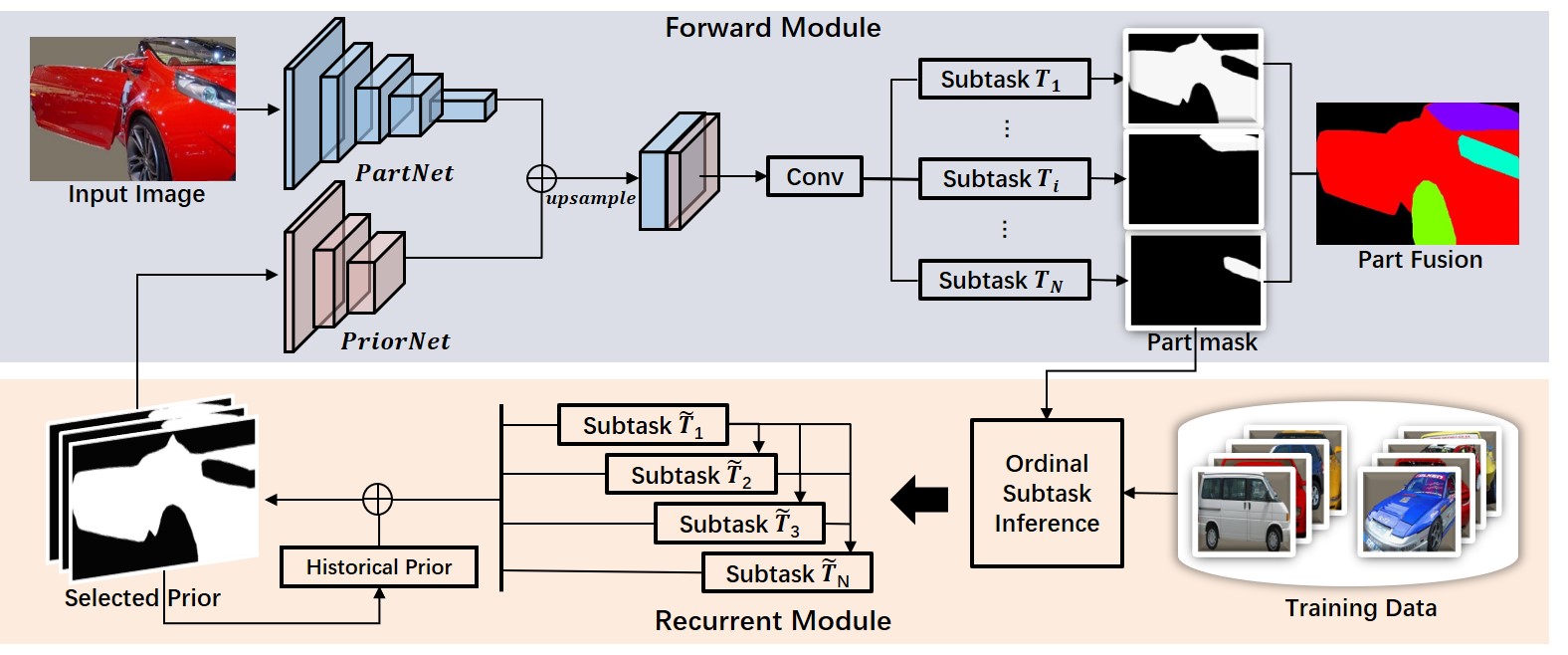Ordinal Multi-task Part Segmentation with Recurrent Prior Generation
Yifan Zhao, Jia Li*, Yu Zhang,
State Key Laboratory of Virtual Reality Technology and Systems, Beihang University
Yafei Song, Yonghong Tian
School of Electronics Engineering and Computer Science, Peking University
Current Status: Early Acess
Approach
Pipeline of proposed OMPS framework. In the forward module, we adopt a weight-sharing network PartNet to extract image-level features and a task-relevant shallow network PriorNet to encode part-level mask priors. After combining image-level features and prior knowledge, a multitask decoder is constructed to parse each part individually. The recurrent module generates and updates appropriate part priors with an ordinal subtask inference algorithm. These two modules are conducted iteratively to get the optimal results. The arrows between different subtasks indicate the ordinal relationships among subtasks (i.e. the results of the former subtasks serve as prior to the latter).
Benchmark
Segmentation Results on PASCAL-Car and PASCAL-Aeroplane dataset. Our model shows superior performances, especially in parsing parts with small size and conflicts between classes. DeepLabv3 is the most efficient model with finer results while FCN and DeepLab-LFOV miss many details in this part parsing task
Citation
-
Yifan Zhao, Jia Li*, Yu Zhang, Yafei Song, and Yonghong Tian. Ordinal Multi-task Part Segmentation with Recurrent Prior Generation.
- Paper: [PDF]Resources: [PASCAL-Part Images, 10103] [PASCAL-Person Annotations, 9.6MB] [Results] [Code] [Pascal-person-part Model, Google Drive]
- Related Model for easy implementation: [Executable Code]

